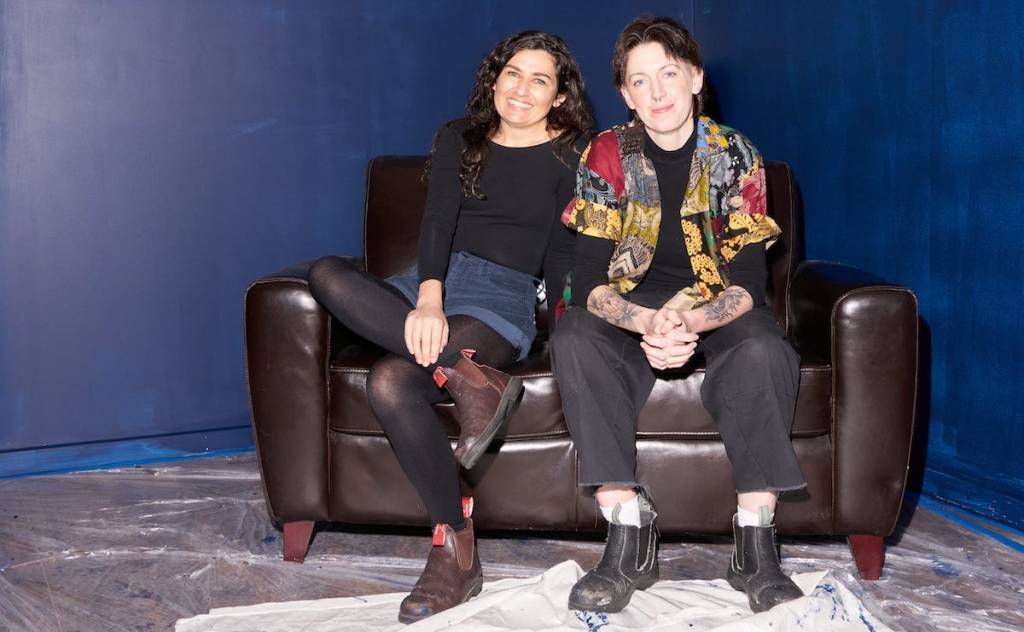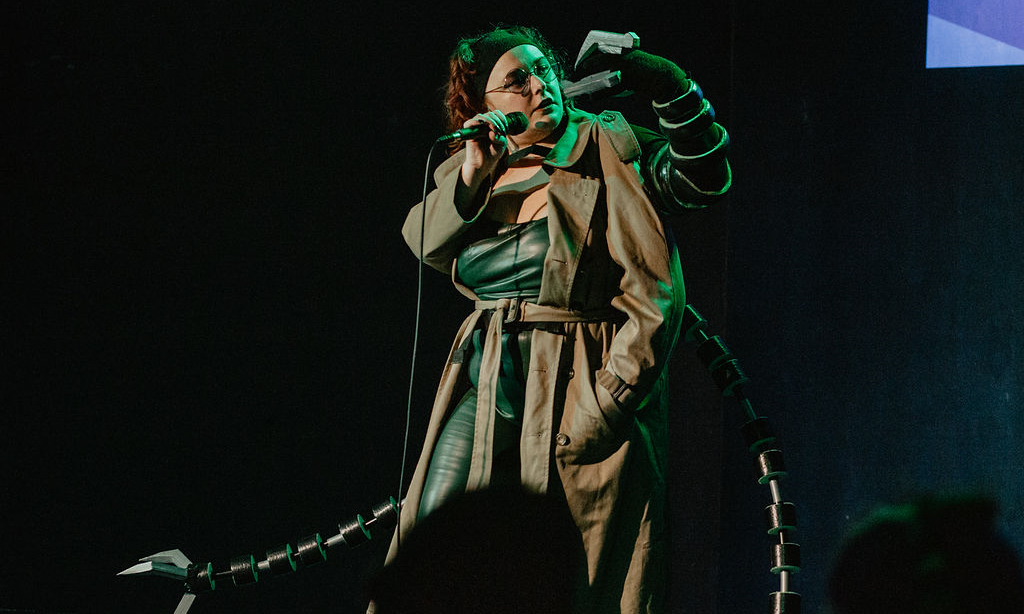My Lover Cindi on Pirie Street is the latest casualty of the hospitality and cost of living crisis.
‘We’ve lost so much more than a nightclub’: My Lover Cindi calls it quits
On Saturday, LGBTQIA+, accessible nightclub and performance space My Lover Cindi announced it would soon close, due to no longer being viable during a cost of living crisis. The venue’s final day is Saturday, June 1.
“The simple answer is that maintaining the exorbitant costs of a night-time venue has been near impossible for the whole three years, and finally at this point we can no longer continue,” co-owners Kate Toone and Rachel Hosking announced via their Instagram post.
My Lover Cindi’s Funeral Farewell Festival
Unit 2/192 Pirie Street, Adelaide 5000
Friday, May 31 & Saturday, June 1
“We (and you all) have done everything possible to keep this place running but we are joining an ever-growing list of venues that just cannot function with the ‘post’-covid cost of living crisis.”
This news comes after My Lover Cindi was granted $23,000 in April as recipients of state government funding through the See It LIVE Music Activation Fund to help offset rising costs associated with putting on gigs. They won’t see the full amount of the grant as they will be closed.
See It LIVE grantee Confession, which also provided an accessible space for disabled patrons, also closed its nightclub aspect a day after it was granted $23,000. They are still open for events.
Rachel says they feel “very positively” about the initiative “especially for how it is helping venues with a more consistent original live music offering”. However, Rachel doesn’t “believe it answers to broader issues affecting venues”.
“It was tailored specifically towards live music as opposed to more generalised operating costs where a lot of venues are struggling with increases in utilities, prices of stock, and insurance, where privatisation of companies has seen certain suppliers have a monopoly on night spaces,” Rachel says.
“Our public liability insurance is over $45,000 per year with no other options to go to. Our utilities are up by over 20 per cent.
“Also, [we’ve] observed increase in wholesale stock prices and whilst we have passed on some of this in our increasing drinks prices, we can’t keep doing it understanding it is simply unaffordable for most of our clientele.”
Rachel says without community support they would not have been able to survive this far, but it isn’t enough to sustain a viable business.
“Overall we have observed a decrease in consistent spending which people share is very much attributed to the cost of living crisis, coupled with the increases in costs that have little to do with us moving sites and more to do with the overall market of suppliers,” Rachel says.
Rachel also recommends that “automated forms of assistance from government” will help operators get through this period — such as “automated rent and utility and wages offsets”.
Small and Family Business Minister Andrea Michaels says that “cost of living pressures are having a flow on effect on [hospitality and live music venues], both from a business and cost perspective on their income”.
“The Malinauskas Government has invested millions to support our live music industry including with our See it LIVE grants, of which My Lover Cindi was a recipient,” she says.
“The State Government has also provided several other grants to assist South Australia’s live music industry including $50,000 for Fringe It LIVE grants for venues hosting live music during Adelaide Fringe and up to $15,000 through the Project Support Grants.”

My Lover Cindi co-owners from L—R: Kate Toone and Rachel Hosking before relocating to their Pirie Street abode in August last year. This picture: Christopher Arblaster.
To access consultant, disability advocate and performer Jacqueline Tedmanson, My Lover Cindi was a “representation of community”.
“I think, in terms of nightlife and hospitality venues, they were pretty much the only option [disabled people] had,” Jacqueline says.
“Then in terms of performance spaces, there’s still a really limited amount, let alone, like financially accessible performance spaces.”
As Jacqueline worked on My Lover Cindi’s accessibility provisions prior to them opening in their most recent space on Pirie Steet, they told us in March the venue didn’t “necessarily [have] perfect access, but perfect practises behind being as accessible as possible”.
“I think one of the key parts of what made Cindi’s so accessible was not necessarily the physical accessibility… I think it was the culture of Cindi’s, and this spirit of caring about it,” they say.
“So in terms of what we’ve lost, we’ve lost so much more than a nightclub.
“I truly can’t identify an equivalent space right now that has that same commitment to access.”
Along with it being a space to go out with friends, Jacqueline also says performing at My Lover Cindi was one of their “main sources of income”.
“That’s like one of my main performance spaces because a lot of the time people either assume that I can’t access it, or the access is so bad that I absolutely can’t work there,” Jacqueline says as a disabled person.
My Lover Cindi also held space for the “less commercially celebrated identities of queerness”.
“We do see more queer media, but it’s still a very, very specific branding of queerness and I think Cindi’s was really good at encapsulating and celebrating every single corner of the queer experience and every intersection of marginalisation,” Jacqueline says.
“I think, once again, we’re left with the feeling like we don’t have that intersectional space as much anymore.”

Diana Divine (Jacqueline’s stage name) performing at My Lover Cindi. This picture: Elizabeth Snaps.
Jacqueline says My Lover Cindi’s was “pretty much the only queer…nightclub” where they can “go to in [their] wheelchair without getting out of [their] wheelchair at some point”.
“For me, the intersection falls in queerness and disability, but there are intersections across every form of identity and marginalisation,” Jacqueline says.
“And I think if you were to find someone else with another intersecting identity, they’d have a similar thing to say.
“There’s space for me to be queer, but there’s not space for me to be disabled.”
Although this finalises My Lover Cindi’s chapter, Jaqueline says the venue’s impact will go far beyond its short life span.
“The loss of the space will not mean the loss of the impact and the cultural shifts that it is created within our city and within our queer community,” Jacqueline says.
“I think that they are leaving our community and culture better than they found it because of their existence.”
Connect with My Lover Cindi on Instagram, and head to this post for details on My Lover Cindi’s Funeral Farewell Festival.




